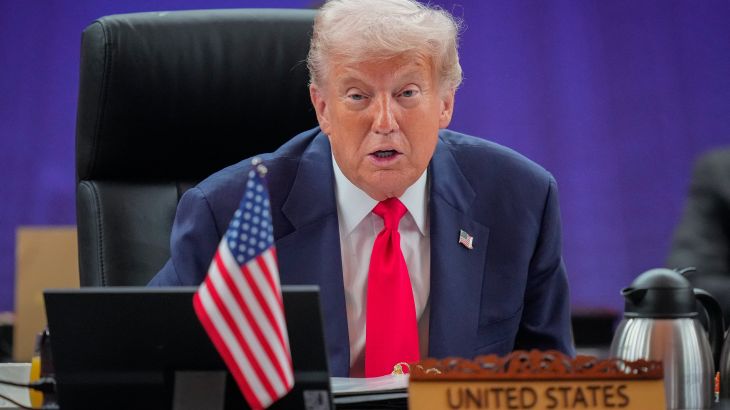Former U.S. President Donald Trump on Tuesday indicated that the United States is close to reaching a trade deal with India. He also mentioned that, at some point, America would reduce tariffs on India. Trump made these remarks during the swearing-in ceremony of Sergio Gor as the U.S. Ambassador to India. During the event, Trump called the upcoming trade deal with India “special” and added, “They don’t like me right now, but they will like us again.”
Working on a Trade Deal with India
When asked in the Oval Office about how close the trade agreement with India was and whether he would consider lowering tariffs on New Delhi, Trump said, “We’re working on a deal with India. It’s very different from what we’ve had before. They don’t like me right now, but they will like us again. We’re getting a fair deal. They’re very tough negotiators, so Sergio, you’ll have to look into it. I think we are very close to an agreement that will be good for everyone.”
High Tariffs Due to Russian Oil
Trump further explained, “Right now, tariffs on India are very high because of Russian oil. They’ve stopped trading Russian oil, and there’s been a significant reduction. Yes, we’re going to reduce tariffs. At some point, we will lower them.”
He added, “I trust Sergio to help strengthen one of our most important international relationships — the strategic partnership with the Republic of India. It’s a big deal. India is one of the world’s oldest civilizations, the largest country in the world, and home to over 1.5 billion people.”
Also Read: Donald Trump’s $5 Million ‘Gold Card’ Visa: What It Means for Indian Nationals
Strong Relationship with PM Modi
Speaking about his relationship with Prime Minister Narendra Modi, Trump said, “We have an excellent relationship with Prime Minister Modi, and Sergio has further strengthened it because he’s already become friendly with him. As Ambassador, Sergio will work to deepen our bilateral ties, promote investment in key U.S. industries and technologies, expand American energy exports, and enhance our security cooperation.”


